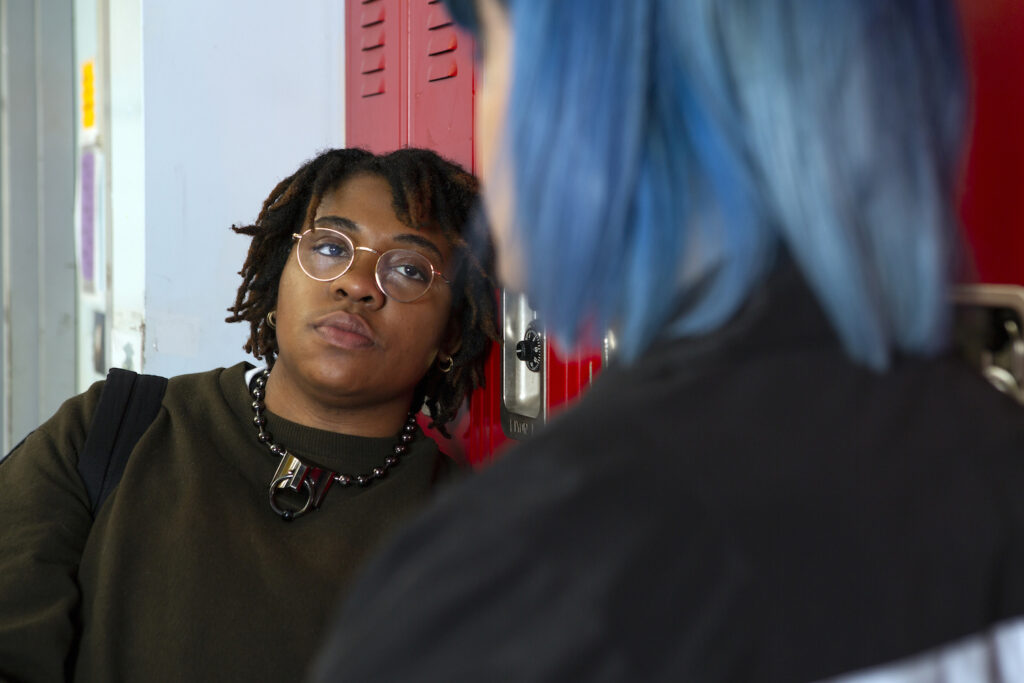By Ana Hernández, Equality Federation and Oliver Stabbe, Lambda Legal
The COVID-19 pandemic reveals a reality we need to face: LGBTQ+ youth are pipelined into carceral systems at higher rates than their non-LGBTQ+ peers, placed at disproportionately high risk of contracting the virus, and too often receive substandard care. It’s time we understand LGBTQ+ youth mass incarceration as a critical public health issue.
With the US leading the way in COVID-19 cases and deaths across the world, social distancing and scrupulous personal hygiene — two practices recommended as among the most effective in protecting oneself and slowing the spread — are essentially prohibited or impossible while detained. Inmates and detainees in the US carceral system are forced to live in close quarters where hygiene conditions and healthcare services are already substandard and deemed a low priority to criminal justice authorities.
Within these systems, about 20% of incarcerated and detained youth are LGBTQ+. For these youth, incarceration is often one of a string of encounters with state systems that consistently fail to protect and support, and instead discriminate against and criminalize their identities.
For example, many LGBTQ+ youth leave or are pushed out of families of origin that object to their sexual orientation, gender identity, or gender expression. When seeking services designed to ensure the health and safety of homeless, runaway, and foster youth, LGBTQ+ youth are frequently met with intolerance, abuse, or neglect by providers and foster parents due to lack of training and institutional bias. As a result, many are unable to receive refuge or services that could divert them from experiencing homelessness.
LGBTQ+ youth comprise 40% of the homeless youth population — and homelessness “is the greatest predictor of involvement with the juvenile justice system,” say experts Dr. Jerome Hunt and Aisha C. Moodie-Mills. Many homeless LGBTQ+ youth are corralled by the adult and juvenile justice systems when they resort to criminalized behavior, such as selling drugs or sex for survival, or are overpoliced and held accountable to “status offenses” for violating truancy or curfew laws.
Schools are not necessarily safer spaces, either. LGBTQ+ youth are a significant subset of youth of color pushed into the criminal justice system via the school-to-prison pipeline. LGBTQ+ students face harsher punishment for similar offenses and they are often the victims, rather than the aggressors, in conflicts. Suspension and expulsion frequently lead to detention and incarceration, because of school systems’ growing overreliance on law enforcement to manage disciplinary problems.
Incarcerated and detained LGBTQ+ youth consistently experience identity-based discrimination, degradation, and abuse, and are subject to inadequate and even harmful health “care,” such as conversion therapy or sex offender counseling based on their sexual orientation or gender identity.
We are all susceptible to COVID-19, and available data indicates youth generally do not develop the severest forms of the virus. Specific groups of youth such as LGBTQ+ youth of color, however, are particularly vulnerable to contracting the virus due to pre-existing health disparities as a result of systemic racism and disproportionate representation within child welfare system — particularly the juvenile justice system. Members of marginalized communities are often subjected to social discrimination and structural violence that withholds care, renders individuals’ bodies less healthy and resilient, and increases vulnerability to illness.
In the US, it is clear that we lack comprehensive prevention, testing, treatment, and health policies and services to address the pandemic. But we continue to learn from the experiences and leadership of other countries about who is most susceptible to contracting the virus, including those in congregate settings, and about the medical conditions that create a heightened risk for developing severe forms of COVID-19, such as HIV, heart disease, diabetes, and lung disease.
These lessons also reveal who we are placing directly in harm’s way: LGBTQ+ incarcerated youth are at disproportionate risk of contracting COVID-19 and may not receive needed testing or care. These manufactured risks make the State complicit in creating and exacerbating concentrated risks of contagion to everyone — not only among people who are imprisoned or detained, workers, and advocates, but also rippling through each of these people’s circles of community and contact.
There are confirmed cases in prisons, jails, immigration detention centers, and among refugee children in government custody already, affecting staff, inmates, and detainees. Advocates and public health experts nationwide warn thatpeople will die behind bars of coronavirus who would have survived if they were in the community, rendering the deadly combination of COVID-19 and our mass incarceration systems a de facto death sentence. In the time of this pandemic, programs to divert LGBTQ+ youth from the juvenile justice system, including educational, health, and child welfare interventions, are increasingly overburdened and underfunded.
So, what can be done? Contact your local public officials to demand they release youth and redirect funds from incarceration to community programs that are youth-focused and LGBTQ+ affirming. Contact your representatives to demand they direct COVID-19 relief funds to care for youth currently in congregate care or carceral settings, and increase funding to state and local systems that prevent and respond to child abuse and neglect. Use social media and make your voice heard with hashtags #childwelfareCOVID and #FreeOurYouth.
In coming together and speaking out, we can make the world a safer place for LGBTQ+ youth.
Resources for LGBTQ+ youth during the pandemic:
- LGBTQ Youth Resources, Equality Federation
- COVID-19 Action & Resource Center, True Colors United
- Point Source Youth’s COVID-19 Toolkits, Point Source Youth
- The Coronavirus (COVID-19) Guide, National Center for Transgender Equality
- Know Your Rights during COVID-19, Transgender Legal Defense & Education Fund
- Resources for Challenging Times, Gender Spectrum
- Trans Lifeline, crisis hotline for trans and gender expansive people
- Trevor Project, crisis hotline for LGBTQ+ youth

